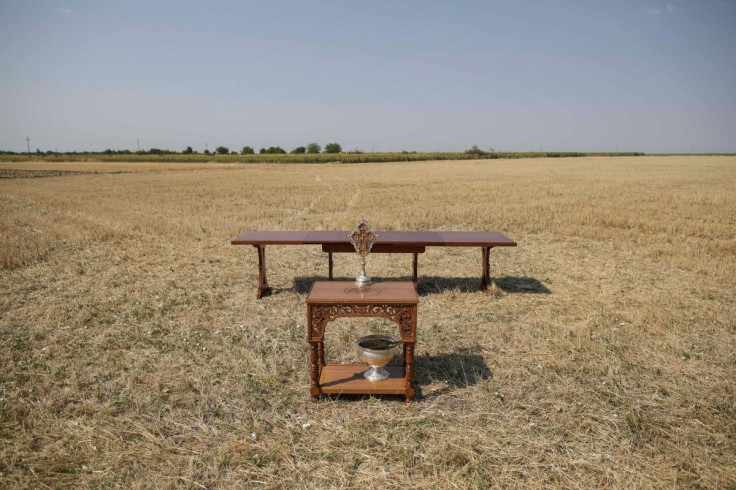'God, Give Us Rain' - Romanian Monastery Prays For End To Drought

Iulia Coleasa, an 81-year-old who relies on her small plot for food, travelled 15 km in searing heat to a monastery in southern Romania on Sunday to join a service praying for rain.
Temperatures have spiked above 40 Celsius (104 F) in the country this week and the drought has left hundreds of Romanian villages with rationed water. Crops are being decimated in the country which is an exporter of grains.
Romania's Orthodox Church has asked clerics to perform traditional rain prayers. At the Pantocrator monastery in the southern Romanian county of Giurgiu, Culeasa joined roughly 100 people in prayer.
She said the weather had never been this bad.
"I haven't seen drought like this until now," she said.
"We have children, we have cattle. We make an effort to plant tomatoes in the garden and they dry out and we have nothing to eat. God, give us rain, don't abandon us."
More than 40% of Romania's population of 20 million live in the countryside and many rely on subsistence agriculture on small plots of land. The country has massive investment needs in infrastructure, including roads, running water and irrigation.
Romania's weather agency issued temperature warnings for Sunday, adding torrential storms would follow, although it said temperatures would remain abnormally high. Water levels on the river Danube were three times lower than usual.
"The drought period is fairly cruel, not just for this place, but for the entire country," said Father Justinian, one of several priests who held the service at the Pantocrator. The priests prayed in a field of harvested wheat across from the monastery, with sunflower and maize fields withering nearby.
The scorching heat is part of a global pattern of rising temperatures, attributed by scientists to human activity. Pope Francis earlier this month called on world leaders to heed the Earth's "chorus of cries of anguish" stemming from climate change, extreme weather and loss of biodiversity.
© Copyright Thomson Reuters 2024. All rights reserved.











